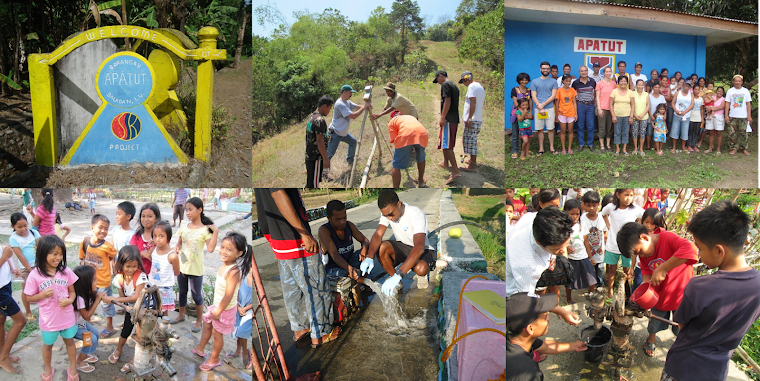The following is a summary of the May 2013 trip as culled from the travel team field report:
- 21 May 2013: Arrival in Manila. Met local NGO contact. Visited a water quality testing laboratory near Manila. Discussed sampling protocol and picked up sampling materials. Visited the Philippine Local Water Utilities Administration (LWUA) near Manila to discuss and review EWB-USA Philadelphia’s rate proposal on behalf of the Apatut community. Took bus to Apatut same-day.
- 22 May 2013: 1st day in Apatut. Met local village volunteers who assisted in fabrication of slug and bailer assembly for well development. Re-assessed EWB drilled deep well for depth to water and total depth. Began slug insertion and bailer recovery testing.
- 23 May 2013: Completed bailer well recovery testing. Collected water quality samples at the EWB drilled deep well, piggery shallow well and guest house well. Took bus to Manila at midnight.
- 24 May 2013: 6am water quality samples on ice at local water quality laboratory in Manila.
Trip Description (as submitted to EWB-USA HQ)
During the May 2013 trip, EWB-USA Philadelphia presented a municipal tie-in proposal to the local water utilities administration (LWUA) nearest to Apatut. Additional assessment was performed related to the EWB-Philly's drilled deep well (from Spring 2012) with conventional well development techniques including; slug insertion and bailer recovery testing. The intent was to determine a preliminary recovery rate from the borehole. Arrangements were made with a local laboratory for chemical water quality analysis targeting volatile organics, semivolatile organics, pesticides, and herbicides. We also began discussions with the local community regarding municipal water line tie-in as a potential water source solution. As an interim measure, our team is investigating the feasibility of point of use household chlorine treatment for improved household water quality in the short term.Completion of the assessment trip has enabled our team to further assess the viability of the drilled well or municipal tie-in as a water source. Water quality results are inconclusive at the moment, as it appears that the integrity of the sample chain of custody has been broken. The next steps will be to confirm the integrity or lack of integrity of the sample chain of custody, evaluate the different water source options; engage the community in a decision-making process to determine the best and/or preferred water source alternative for their needs and wants, discuss available short term measures to improve the community’s water quality and plan next steps with the community’s input. The EWB-Philly project team plans to investigate and assess the work required to complete well development either with local labor and oversight from our traveling members, or a local well drilling contractor.
View some images from the trip at the Well Rehabilitation Video/Images Spring 2013 blog entry below!

